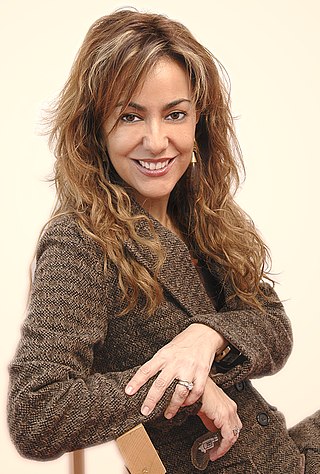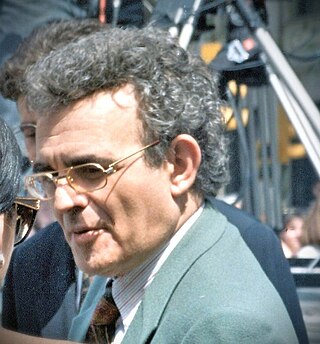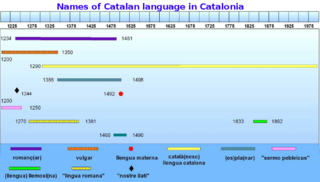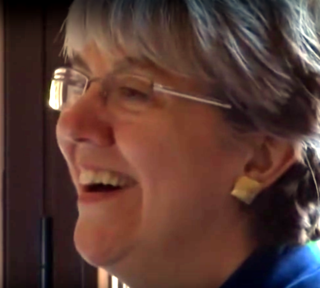
The Catalan Countries are those territories where the Catalan language is spoken. They include the Spanish regions of Catalonia, the Balearic Islands, Valencian Community, and parts of Aragon and Murcia (Carche), as well as the Principality of Andorra, the department of Pyrénées-Orientales in France, and the city of Alghero in Sardinia (Italy). It is often used as a sociololinguistic term to describe the cultural-linguistic area where Catalan is spoken. In the context of Catalan nationalism, the term is sometimes used in a more restricted way to refer to just Catalonia, Valencia and the Balearic Islands. The Catalan Countries do not correspond to any present or past political or administrative unit, though most of the area belonged to the Crown of Aragon in the Middle Ages. Parts of Valencia (Spanish) and Catalonia (Occitan) are not Catalan-speaking.

Maria de la Pau Janer is a writer from Spain who works in Spanish and Catalan. She is a recipient of the Premio Planeta de Novela and the Ramon Llull Novel Award.

Terenci Moix was a Spanish writer, who wrote in Spanish, and in Catalan. He is also the brother of poet/novelist Ana Maria Moix.

Emma Vilarasau Tomàs is a Spanish stage, cinema and television actress.

The first names, or glossonyms, of the Catalan/Valencian language formed in a dialectal relation with Latin, in which Catalan existed as a variety. These names already expressed the relationship between the two languages. New names that related Catalan to Rome came about to dignify the Catalan language in the thirteenth century, though Latinists called it vulgar and the people planus, or pla.

Delfí Abella i Gibert was a Catalan psychiatrist, essayist and songwriter.

Eduard Toldrà Soler was a Spanish Catalan composer and conductor.

Miquel Creus i MuñozaliasMiquel Desclot is a Spanish writer and translator known for his Catalan translations of works by Dante, Petrarca or Michelangelo Buonarroti. He was one of the founders of the Catalan literary collective, Ofèlia Dracs around 1976.

Maria Aurelia Capmany i Farnés was a Catalan novelist, playwright and essayist. She was also a prominent feminist cultural and anti-Franco activist.

Cèlia Sànchez-Mústich is a Spanish poet and writer in the Catalan language. She has lived in Sitges since 2001.

Txarango was a Spanish (Catalan) band formed in Barcelona in 2010. Their members are musicians from the Catalan counties of Ripollès, Osona and Garrotxa. Nowadays, the band is composed of Alguer Miquel (voice), Marcel Lázara, a.k.a. Tito, Sergi Carbonell, a.k.a. Hipi (keyboard), Joaquim Canals (drums), Àlex Pujols, Pau Puig (percussion), Ivan López (saxophone) and Jordi Barnola (trumpet). They propose a musical fusion, taking Reggae as the mainstay, influenced by Dubstep, Latin music or Pop, and mixing Jamaican music, Rock and Latin sonorities. The band introduces itself in an imaginary connected to the circus clowns.

Maria Mercè Roca i Perich is a Catalan writer and politician from Spain. She was deputy to the Parliament of Catalonia for Republican Left of Catalonia, and currently serves as a councillor at the City Council of Girona for the same party.

The following outline is provided as an overview of and topical guide to Barcelona:

Eva Baltasar is a Catalan poet and writer. She has a bachelor's degree in Pedagogy from the University of Barcelona. She has published ten books of poetry, which have earned numerous awards including the 2008 Miquel de Palol, the 2010 Benet Ribas, and the 2015 Gabriel Ferrater. Baltasar's first novel, Permafrost, received the 2018 Catalan Booksellers Award and it has sold the translation rights to six languages.
The Ramon Llull Award is an honor awarded annually by the Government of the Balearic Islands to persons or entities of the Balearic Islands that have excelled in any field. It was established in 1997 by Decree 3/2014.
The Ramon Llull Novel Award is an honor given annually to a novel originally written in Catalan. Conceived in 1981 by editor José Manuel Lara Hernández, it is awarded by the Planeta publishing house in conjunction with the Government of Andorra. It confers a monetary prize, originally 250,000 pesetas and now €60,000. It recognizes works of the greatest economic value in the Catalan language.
María del Carmen "Carme" Contreras i Verdiales was a Spanish stage, film, and television actress.

Rosa Planas Ferrer is a writer, philologist, literary critic and history researcher.

Miquel de Palol i Muntanyola is a Catalan architect, poet and storyteller, son of the archaeologist Pere de Palol.
The Mercè Rodoreda Award for stories and narrations, officially and in Catalan Premi Mercè Rodoreda is a literary award in the Catalan language convened by Òmnium Cultural and the Fundació Enciclopèdia Catalana and published by Edicions Proa. Initially called the Víctor Català Award, which was awarded for the first time in 1953, in 1998 it changed its name to become the current Mercè Rodoreda Award for stories and narratives.
















